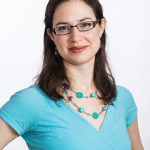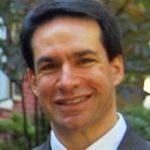eFORUM (feat. Rachel Barney, Lauren Bialystok & Simon Stern) [☛ Event]
ANTI-AUTHORITARIAN PROFESSIONAL ETHICS FOR ACADEMICS: A USER’S GUIDE
Rachel Barney
Canada Research Chair in Ancient Philosophy, Departments of Classics & Philosophy, University of Toronto
I’m truly grateful to the Centre for Ethics, Markus Dubber, my very insightful fellow panelists, and the audience for the opportunity to think through all this together. For me it was a really fascinating and helpful event.Rather than try to reproduce what I said at the time, here are a handful of the points I took away from it — especially the ones which have implications for how I hope the ‘Code’ will be read.
(1) The Code isn’t intended for any one country or year, but it is intended for a pretty specific kind of historical moment and set of threats. That is, it’s ‘Anti-Authoritarian’ in the sense of being oppositional to authoritarian forces (and in particular to a government with authoritarian impulses) within a largely free and democratic society — a moment at which various kinds of resistance and pushback can make a big difference. It’s not so easily applicable to life under full-blown authoritarianism, where the costs of the kind of stand-taking evoked here become prohibitive. I’m afraid I have nothing useful to say about life in that world.
(2) Even in relation to the kind of transitional or up-for-grabs moment in question, the Code isn’t meant as a summons to individual heroism. I don’t feel ethically qualified for anything like that! (Especially not living in Canada, which feels more sheltered from the storm than ever these days — not that situations don’t arise in which some points of the Code are relevant, but standing up for them tends to be low-cost compared to almost anywhere else.) I was surprised and a bit dismayed — not just at the Centre event, but in discussions online — to find that for many readers the text has a rigoristic, heroic flavour. That wasn’t intended: it’s mainly a side effect of the formal framing in terms of first-person commitments, which was meant to be evocative of professional oaths. It’s an exercise in professional ethics for academics, not a hero’s credo. And for that matter…
(3) …’Code of Conduct’ is maybe not quite the right title. That too was meant to indicate that it’s an exercise in thinking about professional ethics. (So, and this is important, it’s not a partisan political manifesto: it was meant to be something a decent conservative academic could happily sign on to, and I’m glad to say that this seems to be the case.) On the other hand, Codes of this kind tend to be public and institutionally enforced, and I envisaged this one as the opposite — as entirely an individual, freelance gesture. My hope was simply that some fellow academics would read it online, recognise their own thinking in it, and pin it to their office doors. And that has indeed been happening. But I now think that for that purpose a better title might be something like: ‘Professional Ethics Checklist’ (see handout at 1). I’m a big fan of the checklist movement, if that’s not too strong a word for it (see Atul Gawande’s The Checklist Manifesto (Henry Holt 2009)), and I don’t see why checklists shouldn’t be a useful tool in meeting ethical as well as (other) practical challenges. In other words: this should work just as well, or maybe even better, on the inside of your door, to warn of the pressures and dilemmas that may be waiting out there, and to remind you that your reflective self has precommitted to taking a certain line on them. One thing that’s clear to me from reading about ‘situationist’ factors in ethics is that most of us are shockingly easily discombobulated, and bounced or nudged from the behaviour we would reflectively endorse. (For instance, you’re much less likely to do the right thing when you’re in even a little bit of a hurry — see the infamous Darley and Batson studies.) So it’s worthwhile having a little checklist to hand, of dangers to watch out for and priorities to hold on to. The hope is that it may trigger a moment of recognition when you might otherwise be rushed or quietly nudged into doing the wrong thing. (‘Wait… that would sort of count as informing/allowing bullying/giving someone a pass on lying, wouldn’t it?’)
(4) Professional ethics are fascinating, and difficult, and we (well, I) need to think harder about them. Academic philosophers do of course sometimes think about such questions, if they work on business ethics or the like; but not most of us, not most of the time, and only very rarely in relation to our own profession. (Philosophically, I think the place to start here is probably with the more general idea of a profession as a social role or ‘practical identity’, a function which fulfils some part of the human good; Aristotle, the Stoics, and recently Christine Korsgaard have all had very interesting things to say about this.) I found it surprisingly easy to set out what I in practice take to be the basics, as relevant here. Roughly: to be an academic is to be professionally committed to intellectual inquiry in a way that involves avowing (6), (7), and (10), and indeed taking these as central to your professional identity. And these values and the projects guided by them unite academics in communities — the academic community as such, and our specific disciplines (which add their own emphases and extensions: see the MIT petition with its focus on ‘science’ (see handout at 2)), and finally the more concrete institutions which the lucky employed among us belong to. And we have duties towards the other members of all those communities, hard to define but perhaps not so hard to recognise in practice. The main thought behind items (1)-(5), then, is that in a proto-authoritarian situation, in which the state cannot be trusted to do the right (or even the legal or constitutional) thing, your default stance should be to protect the other members of your community against it (and its local enablers and cheerleaders) as need be. A bit like E.M. Forster’s famous line about betraying your country rather than your friends, if it comes to that, which was written and needs to be heard in much the same context.
(5) Yes, even you postmodernists and critical theorists avow (7), or some fancier version of it if you like. Part of the point of formulating this as an individual, informal exercise is that the text is open source — if you approve the spirit but not the letter, rewrite as you see fit. (In fact, the website which initially published it, Daily Nous, did a fair amount of rewriting with a rhetorically rather different result (see handout at 1). That was okay by me.) That’s also why there’s no attempt here, especially in my original draft version, to outwit or preclude uncharitable interpretation. For instance, in (5) the term ‘inform’ obviously doesn’t refer to filling out your tax forms or turning in drunk drivers. It’s up to you to decide what does count as informing — if you adopt this, you’re undertaking to trust your judgement in recognising situations where the government is asking you for information which they don’t have a right to or can’t be trusted with. And I trust you to be able to do that: you don’t need any specifications or bureaucratese abstractions from me. Trust in strangers is one of the first things to go as authoritarianism kicks in, but we aren’t strangers, are we? We’re members of the same community.
AN ACADEMIC CODE OF CONDUCT FOR PROTO-AUTHORITARIAN TIMES
Lauren Bialystok
Assistant Professor, Department of Social Justice Education, OISE, University of Toronto
Rachel Barney’s inspiring code of conduct for academics in these proto-authoritarian times taps into a long-standing and widely held recognition that academics are a unique kind of professional. We have the opportunity and the responsibility to conduct disinterested research and promote public education that undermines false, discriminatory, and anti-democratic ideologies. Regardless of their significant ethical obligations and social contributions, few other professions are able (in principle) to influence public discourse and guard knowledge so directly. This is why fascist regimes often begin by muzzling or “disappearing” public intellectuals.
While the weight of responsibility for each item in Barney’s list may fall differentially on academics who are primarily teachers and those who are primarily scholars, all academics, especially in Canada’s publicly funded university system, should take note. Under the Harper administration, Canadian academics already experienced the direct silencing of scientific research that was deemed politically inconvenient, and the defunding of many areas of research regarded as superfluous. Americans can only expect worse under Trump. If academics don’t speak out against these violations, who will?
That said, I want to comment on the individualist language of Barney’s code and reflect on the nature of responsibility within professional organizations. All 10 of Barney’s codes begin with or include the statement “I will.” I realize this is standard within professional ethics codes, and for good reason. The responsibility to behave ethically cannot be diffused amorphously across a group of professionals. Consider doctors. Each individual doctor must commit to do no harm, or they do not belong in the profession.
When it comes to acting ethically in the face of authoritarianism, I worry that individuals cannot be saddled with so much responsibility, or at least not equally saddled. Professors may have different abilities to refuse to be complicit in authoritarian actions, depending on factors such as rank, employment security, gender, family status, physical health, and so on. This goes for all political action and defiance of authority. In a recent petition against an unpopular administrator, I was explicitly advised not to sign because of my precarious status as pre-tenure. Professors bear our burdens as defenders of free inquiry in different degrees at different times.
I would hope that most or all professors would feel comfortable making a commitment to items such as 6, 7 and 10, which have to do with personal academic conduct; but items 1, 2, 4, and 5, for example, may require more than many individuals can safely promise. In item 8, Barney writes “I will, as my capacities allow, discourage and defend against bullying and harassment…” Perhaps we can take the liberty of reading this caveat into the rest of the list as well.
This is not to say that I think professors can easily shy away from their ethical responsibilities. Rather, I want to highlight that there are differences between what individuals can do, and consequently what they might promise to do. Moreover, our individual abilities must be understood in the context of coordinated action. I wonder if there is a way to articulate the collective code of conduct for anti-authoritarian professional ethics, one that takes seriously the categorical entity implied by the word ‘profession’. If the values and commitments outlined in Barney’s checklist are in some sense specific to academia, then perhaps we should not leave them to the discretion of individual academics.
Indeed, effective actions in the face of repressive and anti-intellectual regimes usually stem from groups rather than individuals. In response to Harper’s anti-science policies, the Canadian Association of University Teachers organized the “Get Science Right” campaign, which may not have altered federal policies, but at least built a visible coalition of concerned academics and reduced the risk to any single participant. In my view such professional organizations and collective campaigns are now more urgent than ever. They can emanate from individual administrators or institutions – a responsibility that Barney recognizes in the 9th item on the checklist – but at their most effective they unite the efforts of individual academics, producing a result that is greater than the sum of its parts.
Because I am a catastrophic thinker, the anti-authoritarian code of conduct makes me think of how professionals have reacted historically to Nazis, witch hunts, torture, and the like. Some heroes uphold all the commitments under unimaginable circumstances. Barney has clearly explained that she is not demanding heroism. But thinking about catastrophic circumstances helps to illuminate the fragility of individual responsibility. Our ability to act ethically, and our courage in standing up to authoritarian rule, lie on a spectrum. We all have our limits – which I hope we never have the opportunity to discover. But as a certain presidential candidate once said, we are “stronger together.”
ACADEMIC ETHICS IN A TIME OF TURMOIL
Simon Stern
Associate Professor of Law and English & Co-Director, Centre for Innovation Law & Policy, University of Toronto
Rachel Barney’s professional ethics checklist for teachers and scholars is refreshingly different from the codes of professional ethics that I’m most familiar with, the Rules of Professional Conduct that govern lawyers in any particular jurisdiction. Lawyers’ ethical codes relate primarily to questions about loyalty to the client, avoiding conflicts of interest, truth in advertising, giving an accurate sense of the fee, and taking full responsibility for communications to a client, so as to avoid situations in which an unlicensed person is engaging in the practice of law. If you comb through these codes carefully, you can discern some more inspiring messages about providing work on a pro bono basis, for example, but most of the provisions relate to these more technical issues. Rather than look for analogues in other professional ethics codes, in my comments today I’ll briefly elaborate what I see as some correlates flowing from Professor Barney’s checklist.
One correlate has to do with the virtues of intransigence. It’s often thought that one of the primary academic virtues is the intellectual virtue of flexibility, expressed through an attitude of open-mindedness. Open-mindedness is certainly a great virtue, and as the anti-authoritarian code suggests, it’s a particularly important quality in dealing with students (see #10). But when academics are asked to comment on political policies, or legal decisions, or governmental action, and are asked to engage with commentators who make it their business to defend these policies, flexibility is usually a mistake, because it allows these interlocutors, who rarely model the practice of open-mindedness themselves, to seize the opportunity and attempt to set a new baseline as the floor for any further discussion or inquiry. In these discussions, someone who seeks to remain flexible serves inadvertently to allow for a one-way ratchet in the direction of the person who remains inflexible. So I think that intransigence, stubbornness, and obduracy are also attitudes worth adopting, and they have a place in a code of academic ethics. Again, I see this as already implicit in the checklist—such as the sixth provision, which speaks to the importance of “presenting the state of research in my field accurately,” regardless of what the government or apologists for the government want to hear, and the importance of “challeng[ing] others when they lie.”
Another correlate has to do with value of persistence—that is, of persistently drawing attention to what you see as important, despite its lack of glamor. It’s already become evident that the incoming administration particularly enjoys creating media events that revolve around celebrities. When actors, comics, and other entertainers speak out against governmental policies, a predictable round of tweets, editorials, and Sunday morning squawk ensues. In an age when the study of popular culture has become such a significant part of academic inquiry, there’s a temptation to make these events themselves a focus of research and analysis, with the result that these diversionary tactics serve precisely the purpose they’re meant to serve—namely, to keep people from attending to less glamorous questions, such as the qualifications and backgrounds of various appointees to political offices. And as the incoming administration continues to abandon norms that previous administrations have observed, there will doubtless be numerous protests from popular cultural figures, and numerous efforts to divert attention in precisely the same way. It’s no one’s job to tell other scholars what they ought to be studying, but it’s important to recognize these diversionary tactics for what they are, and to persist in speaking and writing on the questions that remain pointedly unanswered while the tweets and the twitterati are attempting to monopolize public attention.
I’ll close with a brief analogy. One of the most successful means of operationalizing the US Freedom of Information Act (FOIA) has come from law school clinics that have the patience to file repeated FOIA requests and to insist on more disclosure when the initial results are incomplete. These clinics have modeled the relatively prosaic virtues that I’ve been describing, and as teachers and academics, we would do well to emulate them.
